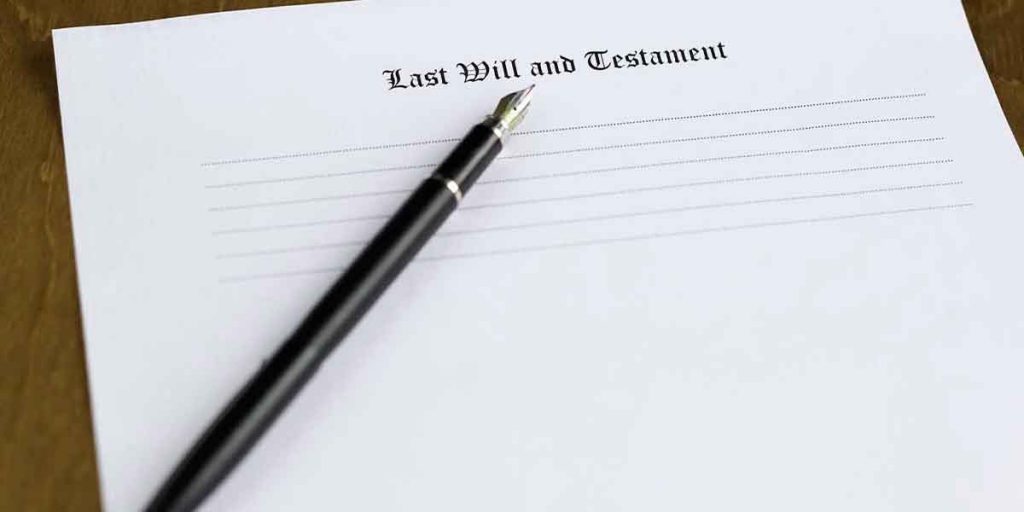Dying without a will leaves some challenges for your loved ones. This is because your last wishes are not known, and this often gives room for your loved ones to squabble over property. It is better to avoid such problems by writing a will now. Contact our estate planning law firm if you need help drafting your Will.
What happens when you die without leaving behind a Will?
When you die without leaving a will behind, your estate will be distributed according to the intestate laws of the state. Here, only your heirs-at-law can inherit your property.
It is possible that you wrote a will; but if the probate court sees your will to be invalid, the document would be discarded. Again, the intestacy laws will apply.
Intestacy
A person who dies without a [valid] will is said to have died intestate. The estate will be regarded as an intestate estate. For intestate estates, the probate court will invoke the intestacy laws to determine who will inherit the estate. These persons are known as default beneficiaries or heirs-at-law.
Heirs-at-law
In New York for instance, the heirs-at-law are the surviving spouse and children. Typically, if you die without a will in New York, your surviving spouse will be entitled to the first $50,000 of your estate and half of the remainder. Your children will then inherit the rest.
If there is no spouse, 100% of the estate will go to the surviving children and vice versa.
If you have no spouse or children, your surviving parent(s) will inherit everything. In the absence of the above, your estate will go to your sibling(s).
Note that intestacy law varies across different states, so you would have to check the inheritance portions for heirs-at-law in your state. Also, note that if an heir-at-law is known to have committed a crime against the deceased or is the person that caused their death, they will not be allowed to inherit.
Who files probate petition when there is no will?
If there is no valid will, it means there is no executor to file the probate petition. In this case, the probate court will appoint an estate administrator according to the priority list of eligible persons. In some states, the court will appoint the spouse or adult child of the deceased. The estate administrator will then proceed according to the normal duties of an executor.
What if there is no will but there is another estate planning document such as a trust?
It could be that the deceased left a trust document instead of a will. All assets held in that trust will pass on to the beneficiary outside probate.
In fact, it could be that there is no will simply because the deceased deliberately wanted to avoid probate. In that case, they must have drawn an estate plan specifically for probate avoidance. Consequently, there will be nothing like intestacy since all their assets will be passing outside the interference of the court.
Assets that pass directly to beneficiaries when you die without a will
The assets listed below will pass directly to your named beneficiaries even when you didn’t write a will:
- Assets held in a trust, whether revocable or irrevocable
- Life insurance proceeds
- Retirement accounts such as 401(k)
- Real property that is jointly owned with your spouse/partner
- Bank accounts with payable-on-death clause.
All of these assets have designated beneficiaries in their deeds so do not need a will to be transferred.
Identifying who qualifies as “spouse” and “children” under intestate succession
Today, there are different kinds of unions and the meaning of spouse or child continues to get vaguer by the day. It is important to browse through your state laws to know who it regards as a legal spouse or child.
Spouse
Typically, you have to be legally married to your partner before they can be regarded as your spouse. But sometimes a situation can affect this such as:
- Separation and divorce
- Same-sex marriages
- Common law marriages
If any of these applies to you, you would have to check your state laws.
Children
- Adopted kids inherit just as biological children in every US state.
- Not all states regard stepchildren as biological children in terms of inheritance.
- Foster children are not regarded as actual children.
Have any questions? Call us
Our estate planning and probate attorneys are readily available to answer your questions. If you need a New York estate planning attorney to help draft your estate plan, we’ve got you covered. Give us a call today.









